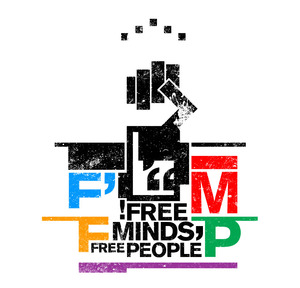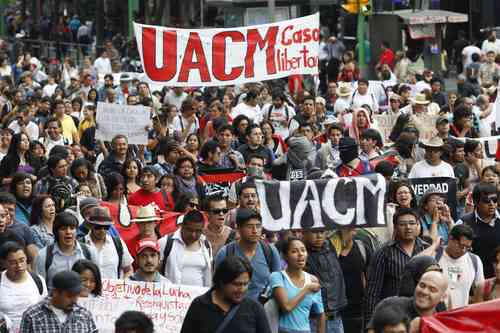UNIVERSITY
SIN FRONTERAS
LIBERATION
SUMMER SEMESTER
2012
ATLANTA Project South
Class
#6 (final): Jenice View
8.15.2012
Emancipatory
Education for Liberation
Jenice
View at Liberation Summer Semester
How
can we teach what we’ve been learning?
We are
going to teach each other about core liberation struggles, thinking
about the theory and practice of what we’ve been doing”...
The Ideas
offered by class members about the best context for learning
experiences: non-school settings, especially in existing communities;
discussions and conversations with others, especially those that
build stronger connections; struggles; hands-on activities;
activities that enhance our ability to learn from our bodies,
including our muscles and our hair; a diverse group; access the
ability to cry as a way to break through to new awareness;
challenges, including incarceration.
Some common
elements shared by these different contexts: expressions of varied
emotions; connections with others; empowering/confronting power;
action involving and acceptance of our bodies; growth of various
kinds.
SUMMARY
BY STEPHANIE GUILLOUD AND RUBEN SOLIS
This
class will help us think about how people learn.
Working
for liberation is a continual process. We take actions that break
down colonial systems everyday but still need to renew regularly our
commitment to the struggle.
Where
are we in the long battle against colonialism?
How
can we talk and work together most effectively to understand
colonialism and dismantle racism, while also imagining and creating
a better society?
...AND
HERE IS JENICE VIEW from Washington DC who is going to share the
knowledge on teaching ...How
can emancipatory education help bring about liberation?
Janice View
started the last class of the LIBERATION SUMMER SEMESTER 2012, by
introducing herself as a Board member of the University Sin
Fronteras, as a professor at George Mason University, and an educator
with teaching for Change, and now as an adjunct faculty for this last
class of six of the course on COLONIALISN & LIBERATION.
After
everyone in the Liberation class had introduced themselves, Jenice
asked the class to divide into four (4) groups as she had prepared
four lesson material packets, one for each group, to assist them in
performing the task of coming up with a LESSON PLAN for each of the
four areas. Each area and materials' packet dealt with a period,
event or personality of a liberation struggle. THE FOUR were
The
Democratic Republic of Congo
Liberation
Theology in Latin America
Caribbean
Pan-African Movement
and
Southern
Civil Rights (Freedom)Movements
Small group work on developing
LESSON PLAN
SMALL
GROUP REPORTS ON FOUR LIBERATION STRUGGLES
The
Democratic Republic of Congo
:
presentation
of a chart showing the elements of the struggle which led to
colonization, those which opposed it, and the material conditions
which affected these developments
1884-1960:
Colonization, imposed by King Leopold II until 1908 and then by
Belgium until 1960, a time period when industrializing nations and
corporations were seeking access to new raw materials, workers, and
consumers.
1960: After
the successful struggle for independence, Patrice Lumumba became
Prime Minister, reflecting a growing worldwide rejection of colonial
values and the rise of Pan-Africanism.
1961:
Lumumba was assassinated and replaced by U.S./CIA-backed Joseph
Mobutu until 1997 as a counter-response to grassroots liberation
movements. Globalizing economic institutions, particularly the
International Monetary Fund and the World Bank, imposed debt
responsibilities on the neo-colonized nations.
Liberation
Theology in Latin America
:
presentation
of a skit, complete with liberation theology posters, which
portrayed how believers in liberation theology might have persuaded
a Columbian peasant to stop believing in the established military
and accept the leadership of a militant Jesus and Camilo Torres, a
Catholic priest who was killed in 1966 in his first battle as a
guerilla. Liberation theologists encouraged supporters of justice
to use their faith to fight power, which they identified as a fight
against institutional sin.
Caribbean
Pan-African Movement
:
presentation
of a skit involving the reactions of two women to a television
program which presented contradictory versions of the life of Amy
Garvey, the wife of Marcus Garvey. One reporter portrayed her as an
admirable Pan-Africanist leader and the other made her seem somewhat
crazy and a hindrance to the movement. The women watching the program
were shocked both at what they had not already known and at the
ability of the media to harm the reputation of a famous person.
Note
from Cita:
I’ve
discovered some information relevant to research on Amy Garvey that
some of you might already know. There were two Amy Garveys. Both
were wives of Marcus Garvey and life-long Pan-Africanist activists.
The
first, Amy Ashwood Garvey, lived with her husband for only a couple
of months. She then criticized him in various ways as she became an
international leader of a version of Pan-Africanism that emphasized
the importance of women.
Amy
Jacques Garvey was married to Marcus Garvey from 1922 to his death in
1940. She supported Garveyism until her death in 1973, calling for a
more traditional but still activist role for women in the movement.
I assume that the documents that inspired the skit were about Amy
Ashwood Garvey.]
Southern
Civil Rights Movement
:
presentation
of a group reading of a call to southerners to join the Civil Rights
Movement in order to build a stronger community; to gain equality and
equal representation; to create radical ideas, beliefs, governance,
education, and demonstrations; and to build this movement through
non-violent direct action. They aimed, as well, to sustain a youth
movement, to expand the Civil Rights Movement, to develop models
reflecting their values for organizing and for social interactions,
and to build their own history. They were guided by the models of a
number of Civil Rights leaders, particularly Ella Baker.
DISCUSSION
OF THE COMMONALITIES BETWEEN THE MOVEMENTS
Pattern of
movements rising and falling and rising again
All
involving experiences of oppression and resistance to it
Character
assassination and other distortions of the facts of history by their
enemies
Revealing
the violence of colonialism, through both mass killings and
assassinations of leaders (Lumumba, Camilo Torres, Walter Rodney,
Archbishop Romero, Malcolm X, and many others)
Public
violence being used against movements as a form of terrorism
Owning
their own history by presenting the truth
Much
movement activism from the 1950s through the 1970s, but with roots
going much earlier
Expanding
their impact by reaching out to other groups
Gaining
strength from faith
Reliance on
technology of different kinds to spread their messages
DEBRIEFING AND FEEDBACK FROM
JENICE
See the
handout with information and space for comments about the different
methods of emancipatory pedagogy.
Focusing on
primary (first-hand/original) sources allows us to develop more of a
sense of how people in the past experienced and thought about their
lives, but secondary (not first-hand) materials can help give those
documents a fuller context, synthesize the information found only by
reading many, many primary documents, and include possible
explanations for the events and developments being studied. Consider
the possible differences between Wikipedia and other encyclopedic
summations of history and those by historical scholars. In starting
a lesson, however, something as basic as a picture book can be an
effective jumping-off point.
Limited
time in a learning session (or limited space for written materials)
makes it necessary to edit thoughtfully. Notice the decisions about
information and documents that are made in textbooks and other common
methods of relating history. In choosing documents for a discussion,
vary the nature of the documents according to length, target
audiences, writing style (wordy and not so wordy), use of images;
remember that some in the group may be reluctant readers who can
learn most from a short quote.
Movements,
by definition, have countless activities going on at the same time.
Think about ways for quiet, shy people to participate in the learning
process and in a movement. “Constructivist”
pedagogy emphasizes the benefits of recognizing that everyone has
some knowledge to share and that we can learn more if we combine all
of that knowledge. “Popcorn”
pedagogy allows anyone to pop into the discussion whenever they have
something to say, allowing free-wheeling brainstorming but giving
more power to quicker (not necessarily deeper) thinkers with loud
voices and self-confidence.
The handout
of the two Learning Pyramids (without research records to support the
numbers given) reminds us of the important to include different kinds
of activities in any learning situation.
Individuals
vary in the ways in which they learn best. Pay attention to your own
learning style, as well as that of others, and to the varying desires
of a particular audience.
Research
does support the effectiveness of using the arts as part of learning
(performance, visuals, music, etc.).
The
strategy of focusing on the personal stories of individuals, whether
in the past or today, is not a trivial approach since it reveals the
extent of personal conflicts and failings in the lives of people too
often portrayed as perfect heroes. We need to see ourselves in the
lives of the people we study. Including biographical information
about more than one leader for each movement can help demystify
activism and leadership by showing that a movement’s success relies
not on the existence of a solitary, heroic leader who seems capable
of more than any of us could do but on the determination,
contributions, and cooperation of many ordinary human beings.
A social
justice orientation to learning often reveals more complexities to
the history than are usually recognized, particularly how many people
were involved in specific developments. A group process can be
difficult, requiring a clear purpose and sensitive facilitators. We
have a number of methods to counter our lack of knowledge about the
past–including oral history (only for the recent past), family
stories, field studies, analysis of documents–but we have to accept
the reality that we cannot know everything. It is important to think
about the most useful questions, even if we cannot find documented
answers for them.
Always
leave open the possibility of unknown elements in a historical
narrative. We know, for example, that Bartolome de las Casas opposed
the oppression of indigenous Americans by the Spanish in the
sixteenth century, but the fact that we do not know about any other
priests who also did so does not necessarily mean that he was the
only one.
STEPHS’S
CONCLUDING THOUGHTS ABOUT THIS CLASS
DECOLONIZE
NOW!
“...Emancipate
yourself from mental slavery...NONE
But ourselves can free our minds...”
-EMERY
“We
believe in and will continue to work for collective development”
-STEPH
Ours
is not to interpret or just know the world...BUT Transform it
-RUBEN





